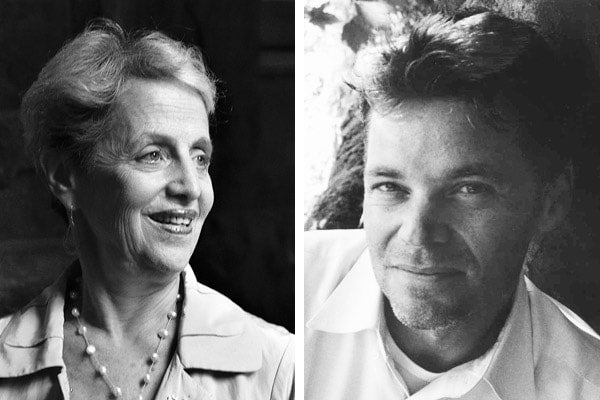
U.S. election: Janice Gross Stein and Mark Kingwell
Published: November 5, 2012
On the eve of the U.S. election, two of Canada’s most admired and provocative thinkers discuss the state of democracy and the choice American voters face – are they choosing between Barack Obama and Mitt Romney or between two equally tarnished visions of the city on the hill?
PEN Canada hosts as CBC Radio’s Carol Off moderates a conversation with the University of Toronto’s Mark Kingwell, professor of philosophy, and Professor Janice Gross Stein, director of the Munk School of Global Affairs at U of T.
U of T News asked Stein and Kingwell for a sense of what the audience can expect Nov. 5 at the Royal Ontario Museum.
The very word “democracy” seems freighted with meaning and emotion for Americans. What does this election reveal about the state of democracy in America?
Stein: This was an inelegant election, a slogging ground game reminiscent of World War I, where the combatants stood in their trenches and fought for an inch at a time, and the casualties were in the millions. In very tough times, the spirits never soared and hope was pushed to the margins. Few Americans can take pride in this election, only relief that it is over and that the sniping has stopped.
Kingwell: The now-viral video of that poor little girl driven to tears by yet another radio story about Mitt Romney and ‘Bronco Bama’ captures the everyday despair of lots of people sick of this extended race. But the serious downside here has been yet another low in the discourse of political thought – new ad hominem attacks, new factual distortions, new styles of evasion. This now becomes the new normal, the baseline for the next round. Which is, of course, coming up soon.
How significant is the choice facing Americans?
Stein: I believe that individuals do make a difference, even within the strictures of a constrained system. Obama and Romney are men of different impulses, whose instincts will take them to different places at critical moments in history.
Kingwell: It’s a real choice, but not the epochal one the pundits have made it out to be. Both candidates are deeply implicated in a system that makes actual political change very difficult. Opponents of each should take heart in that: gridlock in Congress makes it hard to do anything except maintain the current arrangement. Just look at Obama’s health care initiatives. Though of course that does count as a genuine practical difference between the two – at least Romney now positions himself on health care. He took a different view in Massachusetts.
Have U.S. presidential elections captured more global attention in recent years? What is at stake for Canada in this U. S. election? For the world?
Stein: U.S. elections have been seminal for the world since at least 1916. I doubt that their significance has increased. More likely, it is technology, the twenty-four hour news cycle, and social media that are filling the available space.
Kingwell: Yes, I agree with that. The consequences for the world, and for Canada, remain considerable, however. We should be careful not to congratulate ourselves too much that our charted banks weathered the 2008 financial collapse better than U.S. private banks and S&Ls. As the U.S. economy goes, so inevitably goes the world. And the taxation issues at stake in this election, which try to address growing wealth inequality, likewise set trends for other places, including Canada.
This event is hosted by PEN Canada. Is freedom of expression an issue in this election?
Stein: It certainly is. The critical moment was the Supreme Court decision that a restriction on financing could be construed as a restriction on the freedom of expression. I found the logic of the decision very difficult; clearly a reasonably level playing field enables freedom of expression. In the current U.S. election, some clearly have far more freedom to express themselves than others. Canadian campaign financing law has moved in a diametrically opposite direction. Campaign contributions are restricted to $1,100.00 per individual. We can argue that these limits have encouraged political parties to focus on grass roots politics and pay far more attention to public opinion. Party finance laws have arguably enhanced freedom of expression and encouraged greater political participation.
Kingwell: Agreed. The Citizens United decision is probably the most significant political event of our time, enshrining the equation of money with speech. This will prove disastrous for the U.S. political process. Given that it now costs about a billion dollars *each* to conduct a presidential election campaign, the very idea of the president as a citizen is potentially compromised. Nor is there any way for whoever wins the election to enter a term without a host of pre-existing debts to interest groups, lobbies, and individuals. The best government money can buy!
Kingwell and Stein appear Nov. 5 at 7 pm at the Royal Ontario Museum. Tickets available from the ROM box office online or by calling 416-586-5797.



